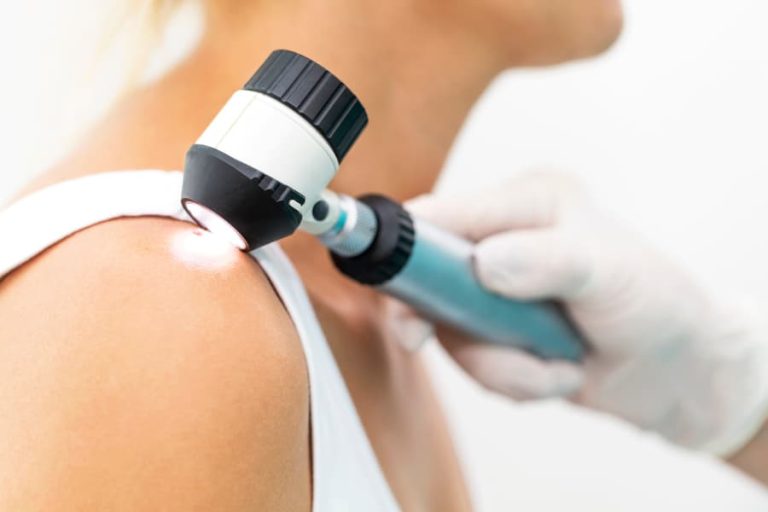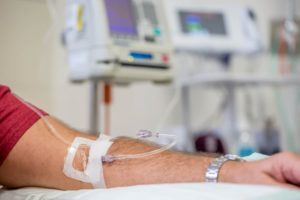
RCCA physicians in South Jersey discuss melanoma
Share on facebook Share on twitter Share on linkedin Share on email Share on print The New Jersey average of 22.2 new cases of melanoma
HIPAA Alert: Potential Data Breach Learn More
Questions on Oncology, Hematology and/or Infusion Clinical Services due to COVID-19 Crisis – CALL 833-698-1623
Important Information for Our Patients Regarding the Coronavirus.
RCCA Providing Area Cancer Patients with Access to Care During Coronavirus Outbreak
RCCA Offering Patients Virtual Visits During Coronavirus Pandemic
For patients diagnosed with skin cancer, several effective treatment options are available. The medical oncologists of Regional Cancer Care Associates (RCCA) offer the latest cancer treatment for melanoma and advanced forms of other skin cancers. With multiple community-based care centers throughout New Jersey, Connecticut, Massachusetts, and the Washington, D.C., area, patients with skin cancer can look to RCCA to find the care they need close to home.
Skin cancer occurs when skin cells mutate and begin to grow irregularly. The skin is the largest organ in the body, and it has several layers, including the epidermis, the skin’s top layer which is where skin cancers occur. There are three main types of skin cancer:
Squamous cell carcinoma is cancer of the squamous cells, which are located on the upper-most portion of the epidermis.
This is a cancer of the basal cells, round cells found just beneath the squamous cells in the epidermis.
Melanoma is cancer of the melanocytes, cells situated below the basal cells and responsible for producing melanin, the body’s skin pigment. This type of skin cancer has the highest tendency to metastasize, or spread.
Other skin cancers, such as Merkel cell, Kaposi sarcoma, and lymphoma, are rare but can be fast-spreading.

Early detection and treatment of skin cancer provides the most treatment options and best outcomes. For instance, the five-year survival rate for localized melanoma — when the disease has not spread beyond its site of origin — is 99%. However, this percentage declines significantly once melanoma has spread to nearby structures or reached distant organs.
The medical oncologists of Regional Cancer Care Associates employ a wide range of treatment options for melanoma and advanced forms of other skin cancers. Therapies employed to treat skin cancer include:
A dermatologist or surgical oncologist has several options for excising cancerous skin cells and a portion of surrounding healthy skin to ensure that no cancer remains. Most skin cancer surgeries are performed in the office setting.
This is a non-invasive form of treatment that often is used on benign and malignant tumors. It employs liquid nitrogen to freeze off cancerous cells. Cryotherapy typically heals evenly without forming scars.
Radiation therapy generally is reserved for use in later stages of skin cancer and often is delivered in combination with other therapies. It destroys cancer with high-energy wave devices.
Chemotherapy uses toxic drugs to kill cancer cells. Patients receive these treatments intravenously, by injection into specific areas of the body, or by swallowing pills or liquids taken by mouth.
Targeted therapy is similar to chemotherapy, and is a fairly new approach. As their name implies, targeted therapies act against specific mutations driving cancer growth, and so have an effect only on cells with these mutations rather than on nearby healthy cells.
Immunotherapies harness the power of the body’s own immune system to identify and attack cancerous cells. Immunotherapy has become a prominent component of the treatment plan for advanced melanoma in recent years.
The medical oncologists of Regional Cancer Care Associates are experts at treating and caring for patients with melanoma and advanced forms of other skin cancers. To learn about treatment options for advanced skin cancer, visit one of the 25 office locations in New Jersey, Connecticut, Massachusetts, and the Washington, D.C., area.
From empowering you with information and tools to fully understand skin cancer, to treating it quickly and comprehensively, RCCA is committed to your care. As one of the nation’s largest cancer physician networks, we have the reach, the resources and the localized accessibility to treat your very individualized needs with top-quality care and unfailing compassion.
For more information, or to schedule an appointment, call (844) 346-7222. You can also schedule an appointment by calling the RCCA location nearest you.

Share on facebook Share on twitter Share on linkedin Share on email Share on print The New Jersey average of 22.2 new cases of melanoma

If you or a loved one has been diagnosed with cancer, doctors can choose from many treatments to provide the best care possible for each

East Coast residents are no strangers to winter weather, and those long, chilly months tend to make time under the summer sun that much more appealing.
When standard cancer treatments aren’t providing the results you want, clinical trials may offer hope. Our physicians use clinical trials to study new treatments, helping transform cancer care for the better. You can enroll in a clinical trial to try groundbreaking treatment plans at zero cost to you.

Regional Cancer Care Associates is one of fewer than 200 medical practices in the country selected to participate in the Oncology Care Model (OCM); a recent Medicare initiative aimed at improving care coordination and access to and quality of care for Medicare beneficiaries undergoing chemotherapy treatment.